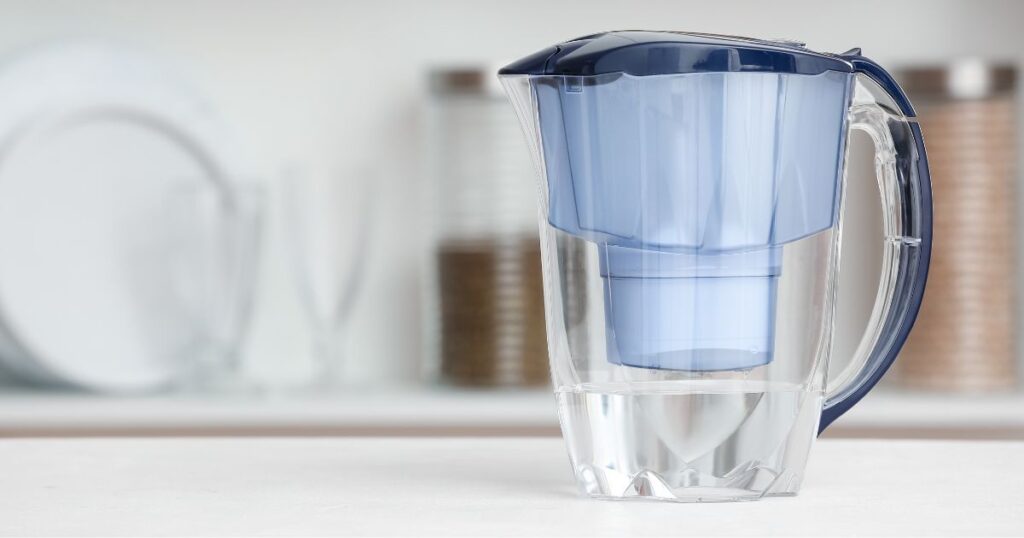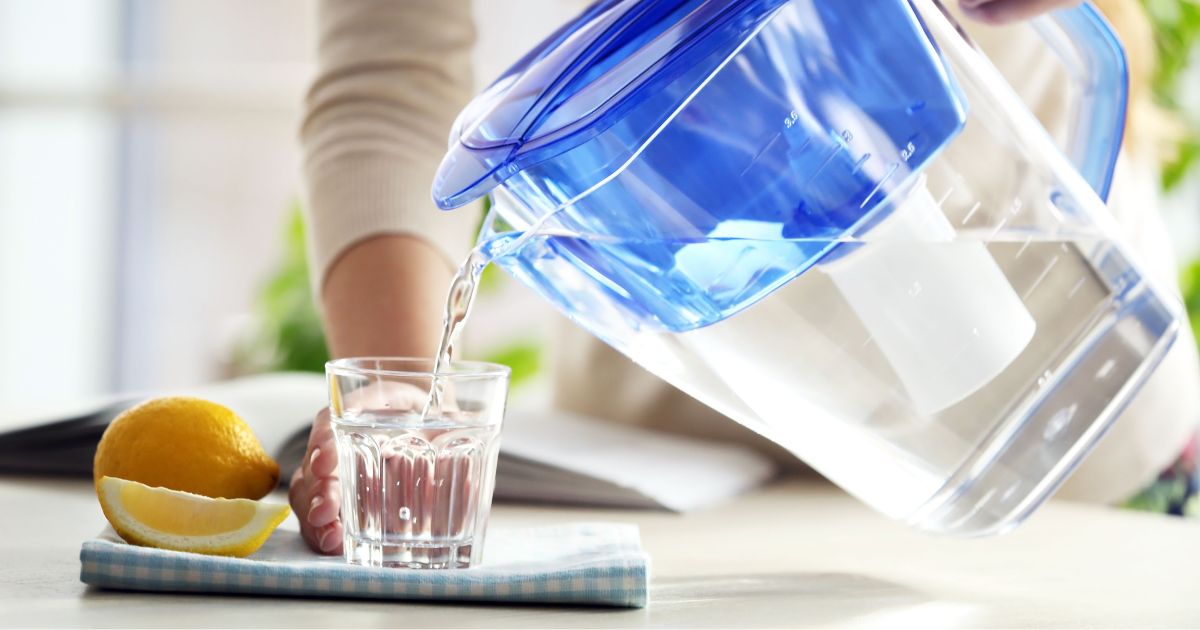If you live in a city like I do, surely your tap water is safe to drink. But sometimes it can still have a noticeable smell or taste. One of the most common complaints is the smell or taste of chlorine, as chlorine is added to water to purify it. So to take care of that, one option is to refrigerate the water, because the coolness can mask the unpleasant aroma. Another option is to consider water filter jugs.
Using water filters is a way to take care of clean water yourself. One of the most popular are water filter jugs because they are readily available.
In this article we talk about these topics:
- Water filter jugs as a healthy addition
- Activated carbon filters
- Other common types of water filters
Water filter jugs as a healthy addition
A water filter mug is a good way to make your everyday life easier and filter your tap water. If you are not sure about the quality of the water available to you, or maybe you just find it unpalatable, a filter cup could solve this problem.
Investing in a good water filter mug could be relevant for many people. Especially since it offers very good benefits.
Things to consider before buying a filter:
- Tap water quality – if the tap water in your home is already safe and clean, a water jug filter may not be necessary. However, if your tap water has an unpleasant taste or smell, or if it contains contaminants that a water jug filter can remove, it could be worth the investment.
- Cost of bottled water – if you’re currently spending a lot of money on bottled water, a water jug filter could be a much more cost-effective solution in the long run.
- Environmental impact – using a water jug filter can be more environmentally friendly than buying bottled water as it creates less plastic waste.
- Convenience too – a cup filter can be more convenient than always buying and carrying bottled water at home.
- Health considerations – if you or a family member has specific health issues that can be affected by contaminants in the water, a filter could be especially helpful.
It should be understood that not all water filters jugs are created equal. Different models can remove different types of contaminants, so it’s important to choose the right model for your situation.
But more about how to choose is written below.

Activated carbon filters
The materials used in water filter cups can vary, it largely depends on brand preference. Most use activated carbon to reduce harmful pollutants and impurities. Activated carbon works through adsorption, which means it attracts pollutant molecules and they stick firmly to the carbon.
These filters remove the following:
- metals such as lead, copper and mercury;
- chemicals such as chlorine and pesticides;
- organic compounds that affect the taste and smell of water.
For example, an activated carbon filter separates chlorine, zinc, copper, cadmium and mercury.
However, activated carbon filters do not destroy all nitrates, dissolved minerals or bacteria and viruses in the water during the adsorption process. Unlike metals, they pass through the filter because they do not react with carbon.
However, minerals dissolved in water are not necessarily dangerous, and most tap water has already been treated to remove bacteria and other harmful microorganisms. Therefore, it is usually not unusual or dangerous.
Other common types of water filters
Water filter cups often also use other types of filters that we list in this section.
1. Ion exchange resins
Some water purifier pitcher filters also contain ion exchange resins. These resins can help soften water by removing minerals like calcium and magnesium that cause scale. They can also remove some heavy metals.
2. Microfilters or membranes
Some pitchers have a microfilter or membrane to remove particles and some microorganisms from the water. They are not as common in jug filters, but are used in some models.
3. Alkaline/water ionizers
These filters use a process known as electrolysis to split the incoming water into two streams, one alkaline and one acidic.
Proponents of this choice claim that drinking alkaline water can improve health, although the scientific consensus does not fully support these claims.
4. UV filters as a more exclusive option
Some advanced and high-end models use UV filters to kill bacteria and viruses. However, these types of filters are rarely found in water jug purifiers due to their size and cost.
It is important to understand that while water filter cups can improve the taste and smell of water and can remove some contaminants, they are not designed to treat heavily contaminated water.
If your available water has a serious contamination problem, you may need a more robust filtration system.
Making your own water filter jug is a great way to take care of your health. Especially if you have noticed that the tap water in your home has an unpleasant taste or smell.
Best of luck with your new filtered water jug!

